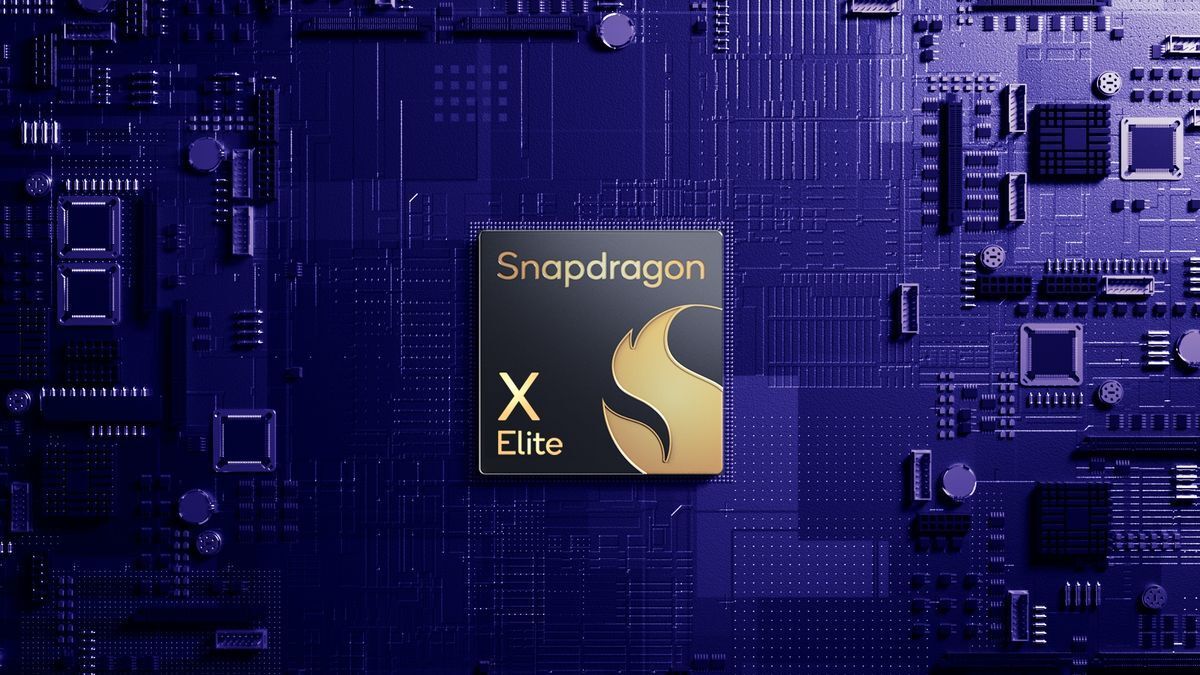2024 could be the year the PC finally dumps x86 for Arm, all thanks to Windows 12 and Qualcomm’s new chip::We’ve already reported on Qualcomm’s new 12-core Arm uberchip, the Snapdragon X Elite, and its claims of x86-beating performance and efficiency. But it takes two to tango when it comes a maj
How can it be both the year of ARM and the year of the linux desktop?
Linux and ARM are not mutually exclusive.
Linux runs great on ARM 😉
Armbian is a really cool project. So is batocera. I have a few SBCs to play with.
Nearly everything on linux is FOSS, so no translation layer needed 1
These new are highend. So expensive, powerhungry and not hugly better than x86 CPUs on their tasks. Must have something that makes it a nobrainer so that it is much better on every aspect.
Apple just had 100% control of all Apples products so they basically forced them over when their new product was just better in most cases.
I’m all for it, just don’t leave out the DIY market. I would love a socketable ARM platform. Risc-V would be even better.
Having used an ARM Mac, and the pains of countless utilities and apps that are x86/x64 only, as well as the pains of virtualising x86/x64 operating systems, I’m not a fan. I can virtualise ARM just fine on x64 but not the other way around.
(Edit: I’m not referring to OS utilities and apps - Apple have done a fine job with porting the OS to ARM, but the same can’t be said for the wider ecosystem - especially FOSS and niche developer toolchains).
I’m guessing the ARM version will be for regular people that just go to the main websites. Maybe the x64 version will become enterprise only.
People probably said the same thing when Apple dropped PowerPC for x86, there’s going to be an awkward transition period but when it becomes a standard you’ll feel differently.
yeah, but were not talkin some niche audience like apple powerpc products. lets not pretend apple had actual marketshare.
this is messing with legacy windows products that are deeply ingrained the world over. it will be far messier than that apple crap
I had a Mac G4 just before the transition from PPC and while that was painful (since x86 emulation sucked) this is a whole different kettle of fish.
These days I’m running all sorts of VMs for research and UTM or QEMU on macOS ARM just doesn’t cut the cheese. On a laptop, sure, ARM is fine. Heck, even in a data centre it’s fine, but on workstations, ARM is too sluggish for virtualisation or anything except ARM. Not to mention the shocking state of Windows 11 on ARM and how loads of Windows components don’t actually function properly or even run. Defenders GUI doesn’t even open!
cut the cheese
This doesn’t mean what you think it means, haha
Haha thank you for pointing that out! I’m European and clearly awful at American slang. I won’t edit my post as that’s too funny a mistake to remove.
removed by mod
Also 68k for PPC 🙂
Apple yes, windows? Not so sure, in windows there’s alot of x86 games and everything, people just won’t drop that you know? And with Linux gaining traction in gaming community x86 going to live at least another decade, ONLY way people going to drop x86 if you can launch x86 apps on arm without terrible drop off performance, while apple have that, others don’t, so until then except mobile devices only apple and niche laptops gonna be on arm, because gaming and other legacy software people not gonna drop until you can launch it on arm without terrible drops of performance
I’m confused, my M1 MBP had like 1-2 things max that were x86 still that I needed and those ran fine on Rosetta.
I know docker is a bit more annoying but it’s not that bad IMHO.
That’s because macs don’t have games. They’ve had 3 iterations of ARM processors and I still can’t download steam natively. If I could, most of my steam library wouldn’t run natively.
Steam runs absolutely fine on my m1. I haven’t checked if it’s running Rosetta or native arm code, but I can’t tell at all so it doesn’t matter. All my Mac games run fine on steam, unless they are old and 32 bit. But macs dropped 32 bit support a while ago even on intel chips. The games run great too.
Came in to say the same, and I run all sorts of weird shit. Rosetta is so seamless the only way I know it’s an x86 thing is that it takes a while to launch the first time.
I don’t care as long as desktops remain modular.
Ampère makes some ARM CPUs that go with modular boards, where you can socket your own CPU, DDR5 RAM, NVMe drives and PCIe accessories.
yeah, least thing I would want is my PC becoming another use and throw mobile phone(it’s already happening with mac and hp’s elitebook).
Tell me you never used Arm based system for daily drive without telling me you never used Arm based system. General software compatibility is not there and PC is not only on Windows or Mac. Sure on Mac they have enterprise support for their user. By having more power (bruteforcing) to run the emulation simply does not mean the software run flawless.
Maybe I’m a bit bias since I’m comparing it with SBCs (but thats what is affordable). As someone who have Raspberry Pi 4 and Orange Pi 5, the situation is a bit different. Raspberry Pi have a well supported system by communities and the devs, meanwhile on Orange Pi 5 some drivers are not released by the Orange Pi/left to the dust if there are no maintainer, not to mention if you want specific build of binary which not covered by repo/ppa, you have to build yourself from source, and the GPU driver situation for OPi5 which not yet have Vulkan support and sub par performance on Linux meanwhile on RPi5 they have Vulkan support 2 weeks after release.
Yeah, no. Still got a huge software issue there.
The CPU and processing power benefits would be great, but if I’m going to lose software support then I’m only going to do it for RISC V.
Where would those benefits be? Let’s start with gaming on the M3 Mac - it’s CPU bound in many games even though apple’s compatibility later is actually good. And the GPU is a joke, even compared to the Intel dGPU offerings. Let’s not start on encoding (besides iMovie), packing or compiling things. Or even actually rendering stuff…
Compatibility layers are comprehensive, but they’re generally not performant. For me personally, I use a real computer that runs my daily workload, servers and games all at once on different virtual desktops, so a faster CPU will definitely be impactful.
It’s not just about avoiding 100% CPU either. CPUs not being the bottleneck for performance sounds like a great problem to have
Yaaaah, came here to something something RISC-V ^.^ One of these days I’ll have a RISC-V system. I’ll have no actual use for it but I’ll love it stubbornly just because :D
Anyway I’m gonna be over here daydreaming about RISC-V taking over the world instead of ARM. Bwehehehehe.
(Edited to fix my ^.^-face)
Fundamentally, I’m not sure Qualcomm is the brand I’d trust to lead the world off of x86.
I understand nobody actually likes Qualcomm products in the cellular space, but they’re stuck with them due to patent minefields. That’s not really a great vibe to bring in when trying to compete against known-quantity x86 vendors.
I figured we’d see homogenous CPUs-- either in the same socket or as an addon module, so you can cast off some stuff to ARM or RISC-V but keep big x86 for games and heavy closed-source software, then flip to RISC-V main with x86 addon cards, and finally emulation.
Sort of thinking about a Pinetab-V, but even the flaky, doesn’t suspend right 20% of the time, wigi was weird on every OS except OpenBSD, Ryzen 2700U it would replace demolishes it. The Lichee Console looked neat with the EEE PC sizing and Trackpoint, but it’s way pricier.
Nope, I’ll never run windows on anything other than x86 (for my desktop).
I’m very happy with my ARM MBP for work, but I occasionally pull up software written decades ago (either music production plugins or games typically) on windows and it still runs, some of the companies that wrote that software no longer exist, so no first party patches will be coming.
I’ll never run Windows.
I’ll never run
I’ll never
I’ll
ll’I
reven ll’I
I
deleted by creator
Fair play, if you don’t need the compatibility with Windows drivers and software, there’s no real reason to choose it in 2023.
Windows 11 on ARM will probably that software without modification.
Assuming it runs on Windows 11 at all…
I’ve used an ARM Mac for the past 3 years on both macOS and Linux. My trusty M1 Air has been an absolute joy to use. I would like more options for a fast, battery efficient and most importantly fanless laptop, so I’m looking forward to this.
Not a chance. We have several more years of x86 dominance.
I don’t know what the author was smoking, but nobody that knows what x86 and ARM are would reasonably say x86 is anywhere near its end. I want it to be, fuck I want it to be, but I’m also not stupid enough to think it’s happening even remotely soon.
I’m rather hoping RISC-V comes up and eats their lunch before it happens.
My reasoning for this is that I’ve lost too many hours trying to kludge finnicky ARM boards into supporting proper mainline video acceleration. It’s awful. It’s horrible. It’s a waste of time.
The silly x86 SBC I got worked out of the box with OneAPI with no complaints at all.
The ARM boards ran the gamut from gibberish/garbage rendering, dropped frames, washed out images because of cheap tricks to up performance.
I know this is more down to the weak (and proprietary) video cores included on these boards… but after spending a significant amount of time playing with them, I’m going to say “No, thank you.”
I think this is likely. After dealing with how bad W11 is, MS realized they don’t need working software or backwards compatibility to sell units.
Silly bot, windows go on the walls.
Limping along with a wonky hinge on my 5 year old laptop waiting for these to come out. Haven’t run windows for years now so I don’t think I’ll be missing intel much at all. Might have to do some cross compiling for deploying software to intel cloud nodes, but arm VMs for android development will speedy.
Depending on which problem you’re experiencing, I’ve used jb weld to fix it.
JB Weld is magic (as is it’s competitor PC7, seems to be the same stuff). I just used it to fix an iPad keyboard - the part holding the iPad cracked near the hinge. Just filled the interior with JB and reassembled (it squeezed some JB out). Crack is still there, but the hinge area is even more rigid now. Of course it’ll never come apart again.
I’d like to promote Goop. It’s like a super thick rubber cement. There’s very little it won’t stick to. Very strong. It’s pretty much all I use anymore. Oh, and it peels right off when you need to remove it (though it takes some effort).
I’ve glued phone mounts to the dash with it. Power strips to the underside of the desk. Glued laptops back together when the screw mounts break. Use it for the metal disks on back of phones for magnetic mounts. It’s holding L-brackets to the back of the TV so I could put the soundbar on top. Also a bunch of industrial Velcro (the thick plastic stuff) on the back of the TV to hold a wifi router, Bluetooth adapter, USB hub, power supplies, and cable management.
Oh I’ll have to look for that. It took a week for your message to appear for me. Not sure why






















